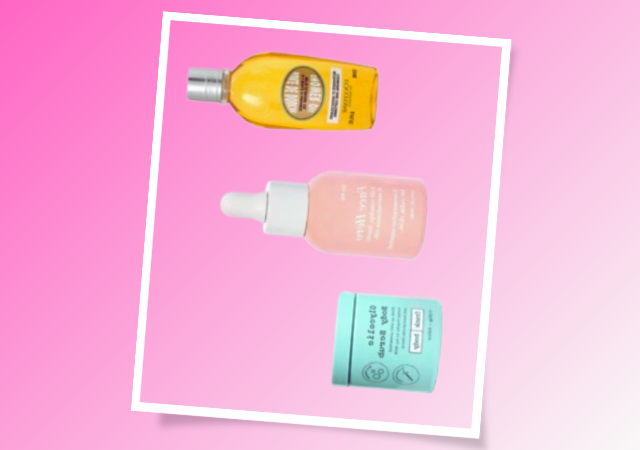Sensitive Skin? No Problem! Dive into the Top Skincare Products for Women
Introduction
Understanding Sensitive Skin:

Before we delve into the world of skincare products, let’s take a moment to understand what exactly sensitive skin entails. Sensitive skin is characterized by heightened reactivity to various stimuli, including environmental factors, skincare products, and even stress. Common symptoms of sensitive skin include redness, itching, burning sensations, and dryness. While genetics play a role in determining skin sensitivity, external factors such as harsh weather conditions, pollution, and improper skincare routines can exacerbate the problem.
Factors to Consider When Choosing Skincare Products:
Selecting the right skincare products for sensitive skin can be a daunting task, but armed with the right knowledge, it becomes infinitely more manageable. When shopping for skincare products, there are several key factors to consider:
- Ingredients to Avoid: Certain ingredients commonly found in skincare products can trigger adverse reactions in sensitive skin. These include fragrances, alcohol, sulfates, and harsh chemical preservatives. Opting for products formulated without these potential irritants can help minimize the risk of sensitivity reactions.
- Key Ingredients to Look For: On the flip side, there are several ingredients known for their soothing and calming properties, making them ideal for sensitive skin. Look for products containing ingredients such as aloe vera, chamomile, oat extract, and hyaluronic acid, which help hydrate, nourish, and protect the skin without causing irritation.
- Understanding Product Labels: Navigating product labels can be confusing, especially when manufacturers make lofty claims about their products’ effectiveness. Learning to decipher product labels and understanding the significance of terms like “hypoallergenic,” “fragrance-free,” and “dermatologist-tested” can empower you to make informed choices about the products you use on your skin.
Best Skincare Products for Sensitive Skin:

Now that we’ve covered the basics, let’s explore some of the top skincare products specifically formulated for women with sensitive skin:
- Gentle Cleansers: Cleansing is the first step in any skincare routine, but for sensitive skin, it’s crucial to choose a gentle cleanser that effectively removes impurities without stripping the skin’s natural moisture barrier. Look for creamy, non-foaming cleansers enriched with soothing ingredients like cucumber extract, calendula, and green tea.
- Moisturizers: Hydration is key for maintaining healthy, resilient skin, especially for those with sensitive skin prone to dryness and irritation. Opt for lightweight, non-comedogenic moisturizers that provide long-lasting hydration without clogging pores or exacerbating sensitivity. Products containing ceramides, glycerin, and niacinamide are particularly beneficial for reinforcing the skin’s protective barrier and restoring moisture balance.
- Serums: Serums are concentrated formulations packed with active ingredients designed to target specific skincare concerns. For sensitive skin, opt for serums formulated with gentle yet potent ingredients such as vitamin C, niacinamide, and peptides. These ingredients help brighten the complexion, reduce inflammation, and promote collagen production without causing irritation.
- Sunscreens: Sun protection is non-negotiable, regardless of your skin type. However, many traditional sunscreens contain chemical filters that can irritate sensitive skin. Instead, opt for mineral-based sunscreens containing zinc oxide or titanium dioxide, which provide broad-spectrum protection against UVA and UVB rays without causing sensitivity reactions. Additionally, choose formulas labeled “sensitive skin” or “dermatologist-tested” to minimize the risk of irritation.
- Specialized Treatments: From acne flare-ups to occasional redness and irritation, sensitive skin can benefit from targeted treatments designed to address specific concerns. Look for spot treatments containing ingredients like salicylic acid, sulfur, or tea tree oil to combat blemishes without drying out or aggravating the skin. Similarly, soothing masks enriched with ingredients like colloidal oatmeal and licorice extract can provide instant relief for irritated, inflamed skin.
Tips for Skincare Routine for Sensitive Skin:
In addition to choosing the right skincare products, adopting a gentle and consistent skincare routine is essential for managing sensitive skin effectively. Here are some tips to keep in mind:
- Cleanse Twice Daily: Cleanse your skin morning and night using a gentle cleanser suited to your skin type. Avoid hot water and harsh scrubbing, as these can strip the skin of its natural oils and exacerbate sensitivity.
- Moisturize Regularly: Apply a moisturizer suited to your skin type immediately after cleansing to lock in hydration and protect the skin’s moisture barrier. Pay special attention to dry or sensitive areas, such as the cheeks and around the eyes.
- Patch Test New Products: Before incorporating a new skincare product into your routine, perform a patch test on a small area of skin to assess its compatibility. This helps minimize the risk of adverse reactions and allows you to identify any potential sensitivities before applying the product to your entire face.
- Avoid Over-Exfoliation: While exfoliation is beneficial for removing dead skin cells and promoting cell turnover, over-exfoliating can irritate sensitive skin and disrupt its natural balance. Limit exfoliation to once or twice a week, and opt for gentle exfoliants formulated with mild acids or enzymes.
- Protect Your Skin from the Sun: Sun exposure can exacerbate sensitivity and trigger inflammatory reactions in the skin. Wear a broad-spectrum sunscreen with SPF 30 or higher daily, even on cloudy days, and reapply every two hours when outdoors.
Lifestyle Factors Impacting Sensitive Skin:
In addition to a tailored skincare routine, certain lifestyle factors can influence the health and resilience of sensitive skin. Consider the following:
- Diet and Hydration: A balanced diet rich in antioxidants, vitamins, and essential fatty acids can support skin health from within. Stay hydrated by drinking plenty of water throughout the day, as dehydration can exacerbate sensitivity and dullness.
- Stress Management: Chronic stress can manifest on the skin in the form of increased sensitivity, inflammation, and breakouts. Practice stress-relief techniques such as meditation, deep breathing exercises, and regular physical activity to promote relaxation and maintain a healthy complexion.
- Environmental Factors: Environmental pollutants, harsh weather conditions, and indoor heating can compromise the skin’s natural barrier function and exacerbate sensitivity. Protect your skin from environmental aggressors by wearing protective clothing, using a humidifier indoors, and avoiding prolonged exposure to extreme temperatures.
- Skincare Habits and Hygiene Practices: Adopting healthy skincare habits and hygiene practices can go a long way in managing sensitive skin. Avoid touching your face with dirty hands, and regularly clean makeup brushes and applicators to prevent bacterial buildup and potential skin irritation.
Conclusion
To wrap up, dealing with sensitive skin can be tricky, but it’s totally doable with the right products and habits. By getting to know your skin’s quirks, choosing products that are gentle yet get the job done, and sticking to a regular skincare routine, you can keep your delicate complexion happy for the long haul. Don’t forget to tune in to what your skin is telling you, take your time with your skincare routine, and always put your well-being first. With the right mindset, sensitive skin is just another part of what makes you uniquely beautiful – something to cherish rather than stress over.

My name is Rohit Vagh and I’m a content writer specializing in fashion and lifestyle. I have three years of experience in this field and have written various articles. My writing style is creative and engaging, and I strive to create content that resonates with my readers. I have a deep passion for fashion and am constantly researching the latest trends and styles to make sure my readers are up to date. I’m excited to continue my career in blogging, and I’m always looking for new opportunities in the fashion and lifestyle space.





